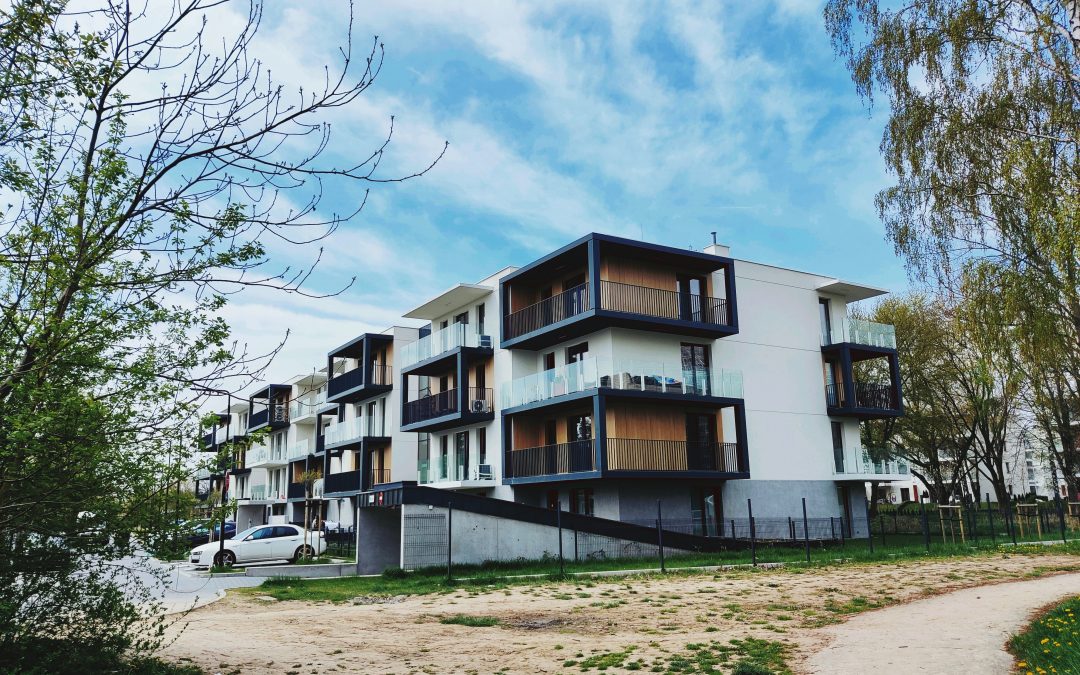More than 500,000 Polish mortgage holders took advantage of a new law allowing them to temporarily suspend payments in the first two days after it came into force, says Prime Minister Mateusz Morawiecki. He warned that any attempts to obstruct access to the programme by banks will be penalised.
This means that approximately 25% of those eligible took advantage of the so-called “credit holidays”, which are intended to ease the burden on households having to cope with soaring loan instalments after interest rates rose to their highest level in more than 15 years.
Since 29 July, people who hold a mortgage in zloty for their own housing needs have been able to suspend repayments for up to four months this year and four months next year. During a single quarter, repayments can be suspended for a maximum of two months.
The prime minister said that the programme would cost the banking sector up to 20 billion zloty (€4.25 billion) over two years and warned that the government would monitor whether banks were making it difficult for Poles to access the scheme.
“I am very pleased that so many people have already taken advantage of the government’s credit holidays,” said Morawiecki during a press conference on Tuesday. “Any attempt to restrict the use of this facility will be penalised.”
“Any practice along the lines of introducing cumbersome procedures, scaring people with reduced credit scores, is inappropriate. I have ordered particular scrutiny of such situations,” he said.
Poland's government is offering an unprecedented mortgage payment holiday to households. But banks are warning of legal action against a move that will erase their profits and make them bear the cost of soaring interest rates. https://t.co/taYg87jwZt
— Raphael Minder (@RaphaelMinder) August 1, 2022
Faced with Poland’s high inflation in 25 years, the central bank has, like its counterparts in the region, been raising interest rates, which are currently at 6.50%, the highest level since February 2005. With the rise in rates, not only borrowers’ instalments but also banks’ profits have increased significantly.
Data from the Bank Guarantee Fund (BGK), an institution that monitors the situation of commercial and cooperative banks on an ongoing basis, shows that the net profit of the entire financial sector in Poland for the first five months of the year more than doubled year-on-year to 12.1 billion zloty.
“I can already see the first data from the banking sector – these are very solid results, so let’s not feel sorry for the banks,” said Morawiecki, who was himself chairman of a large bank, Bank Zachodni WBK (now Santander Bank Polska), before entering politics.
Poland's central bank has raised its benchmark interest rate by 50bps (less than forecast by analysts) to 6.5%, the highest level since February 2005.
The rise is the tenth in a row since last October, as the bank responds to Poland's highest inflation in 25 years pic.twitter.com/VJNBy8sZ6o
— Notes from Poland 🇵🇱 (@notesfrompoland) July 7, 2022
Poles are trying to cope with the rising cost of debt not only by postponing repayments. Some decide to pay off their mortgages early or overpay in order to reduce the duration of the loan.
More than half of those now postponing instalments intend to use the saved-up money to overpay the mortgage, Credit Information Bureau (BIK) said in a statement.
According to BIK’s data, the amount of home loan overpayments has quadrupled over the past year, reports economic news service 300Gospodarka.
Kwota nadpłat kredytów mieszkaniowych w ciągu ostatniego roku wzrosła 4x, wynika z danych @grupabik. Polacy chcą jak najszybciej spłacić banki – i wykorzystają do tego #WakacjeKredytowe#inflacja #kredyt #nieruchomościhttps://t.co/mpu0Yz8yV7 pic.twitter.com/UrnjjbEclR
— 300Gospodarka (@300gospodarka) August 2, 2022
Before the new credit-holiday programme came into force, Poland’s consumer watchdog, UOKiK, announced that it would be looking at how financial institutions implement the system on an ongoing basis as part of its investigations. Sixteen banks will be monitored by the agency.
“We do not accept the practice, which already is carried out in some banks, of requiring, for example, a separate request for the suspension of instalment repayments in each quarter,” said Tomasz Chróstny, UOKiK’s president.
“This is an obstruction of the use of credit holidays, [which have been] introduced to give relief to consumers,” he added.
Tomasz Chróstny, Prezes #UOKiK: – Nie akceptujemy praktyki, która pojawia się już w niektórych bankach, a dotyczy np. wymagania osobnego wniosku na zawieszenie spłaty rat w każdym kwartale obowiązywania wakacji kredytowych, a nawet osobnego wniosku na spłatę poszczególnej raty. pic.twitter.com/FhLf7VkHNC
— UOKiK (@UOKiKgovPL) July 26, 2022
Main photo credit: Piotr Kulpinski/Unsplash

Alicja Ptak is deputy editor-in-chief of Notes from Poland and a multimedia journalist. She has written for Clean Energy Wire and The Times, and she hosts her own podcast, The Warsaw Wire, on Poland’s economy and energy sector. She previously worked for Reuters.




















